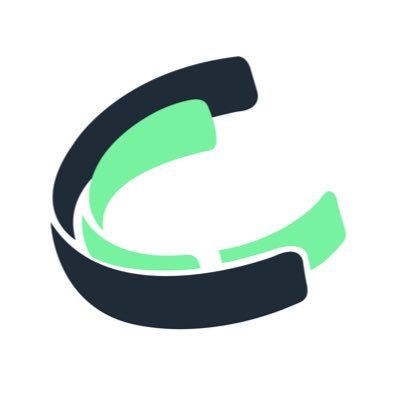You may be an engineer in Atlanta, a marketing lead in Detroit, or a finance major at Howard who wants more than LinkedIn headlines. You want to help write the first check. The opportunity set has never been stronger. Across 2024 and the first half of 2025 more than a dozen U.S. funds either launched or expanded programs aimed at building Black investor talent. The seven options below concentrate on skill‑building, real deal exposure, and alumni networks that keep paying career dividends.
BLCK VC’s Black Venture Institute
If you learn best in sprints, this free, two‑week virtual course run by BLCK VC, Salesforce Ventures, and Berkeley Haas belongs at the top of your list. Fellows study term sheets, valuation math, and board dynamics alongside live office hours with partners from Sequoia, GV, and Kapor Capital. Graduates join the BLCK VC Hub, an invite‑only Slack where deal flow and job openings circulate daily.
BLCK VC Breaking Into Venture
For early‑career operators who want more hand‑holding, BLCK VC also runs a nine‑week evening program that drills you on sourcing, diligence, and memo writing. Past cohorts included analysts from Goldman Sachs and product managers from Microsoft. Acceptance rates hover near three percent, so polish your application before the Spring 2025 portal opens.
HBCUvc VC Training and Internship
HBCUvc’s six‑month, culturally affirming fellowship pairs Black graduate students with leading funds. You work on live diligence, attend weekly masterclasses, and finish with a paid summer placement. Alumni have landed full‑time roles at Bessemer, Insight, and Google Ventures.
Colorwave Fellowship
Colorwave’s nine‑week, fully remote fellowship teaches under‑represented talent how the startup and VC ecosystems work, then brokers interviews at high‑growth companies and funds. Sessions run on weekday evenings, making the program feasible if you keep a day job.
Harlem Capital Internship
Harlem Capital’s 10‑week remote internship happens three times a year and focuses on research, founder outreach, and investment memos. Interns meet portfolio CEOs, present to the partnership, and join an alumni group now three hundred strong.
Collide Capital Undergraduate Scouts
If you are still on campus, Collide Capital lets student scouts source and pitch deals directly to the investment team. Active scouts have already brought in seed rounds for fintech and AI startups from Spelman, Morehouse, and Michigan.
Lightspeed Emergence Scout Network
Lightspeed Venture Partners rebuilt its long‑running scout program to center investors from Black, Latinx, Indigenous, and Pacific Islander communities. Forty‑two current scouts each manage a micro‑pool and receive carry in any deal Lightspeed follows.
How these programs help your career
- Fast feedback loops. Weekly memo reviews replace the slow apprenticeship model that once dominated venture hiring.
- Network density. A single BLCK VC cohort plugs you into hundreds of Black investors across the U.S., turning cold emails into warm intros.
- Credibility with founders. Harlem Capital interns and Collide scouts speak the language of diverse founders who often distrust traditional VC. Funds know that edge opens doors.
- Pathways to capital. Lightspeed scouts control up to one hundred thousand dollars per year, creating a real track record you can show future LPs.
What selection teams care about
- Community reach. Maybe you run a 5 000‑member coding Slack in Baltimore or host fintech meetups in Nashville. Provide screenshots and attendee numbers.
- Filtering skill. Every application asks for one startup you would back. State the market size in two sentences, list one killer KPI, and explain your price logic.
- Ethics under pressure. Scouts and fellows see decks before they are public. Expect scenario questions about confidentiality and signaling risk.
Most funnels involve a culture call, a short written memo, and a partner interview or mock investment committee. Success rates improve when applicants show proof of hustle – angel checks, hackathon mentoring, or sector blogs.
Life inside a cohort
Monday nights often unpack pro‑rata math. Mid‑week study circles debate a live seed deal; one member defends, another red‑teams. Friday office hours let a general partner rewrite your thesis in red ink. Expect to spend ten focused hours per week. Scout tracks usually require one qualified lead every month. Fellowship tracks end with a simulated investment committee where you defend a deal and outline follow‑on reserves.
Measuring the ROI
Graduates of Black Venture Institute report writing real angel checks within six months. Colorwave says eighty‑five percent of its fellows land new roles within ninety days. Harlem Capital’s internship pipeline now accounts for a quarter of the firm’s full‑time hiring. In short, these programs are no longer experimental; they are infrastructure.
Prepare your application stack
- A 100‑word bio that lists quantified wins.
- A one‑page sector thesis with one proprietary data point – perhaps why AI tooling spend by HBCU start‑ups will triple by 2027.
- A simple cap‑table model in Google Sheets.
- Two founders willing to vouch for your response time and judgment.
Treat the application as your first investment memo. Concise writing and clear numbers show you already think like an investor.






